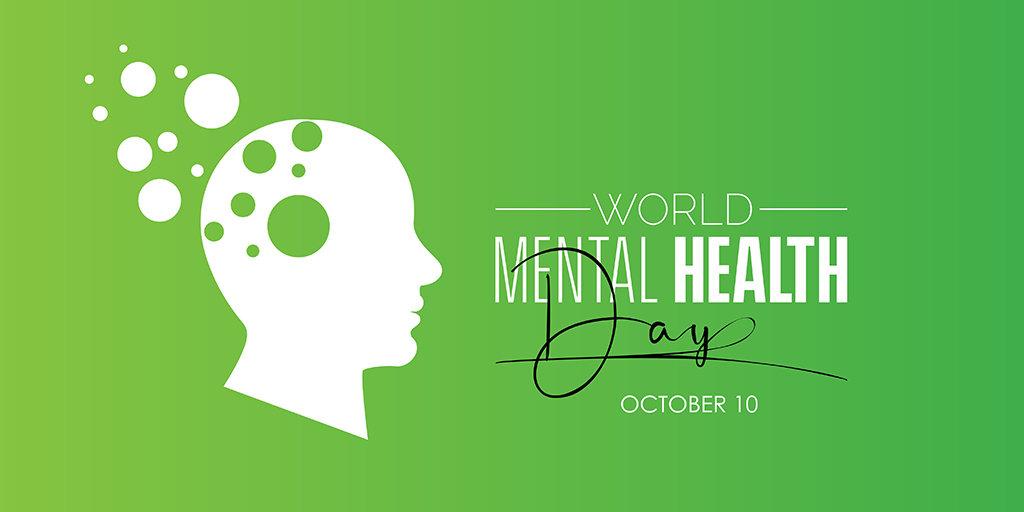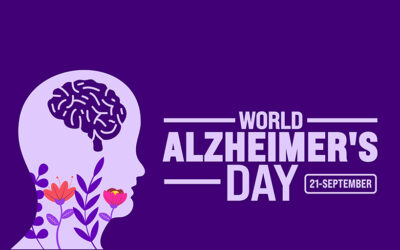World Mental Health Day 2025: Breaking Stigma and Supporting Well-being

Mental health plays a vital role in our overall well-being, yet it often remains overshadowed by stigma, silence, and lack of understanding. Millions of people around the world experience mental health conditions such as anxiety, depression, and bipolar disorder, but continue to suffer in isolation due to fear of judgement or limited access to care. To address these challenges, World Mental Health Day is observed every year as a global call to action for awareness, inclusion, and improved access to mental health support. In this article, we will explore the history and theme of World Mental Health Day 2025, understand the challenges faced in mental health care, and highlight practical ways individuals, communities, schools, and workplaces can contribute to building a more supportive future.
What is World Mental Health Day?
World Mental Health Day is observed every year on 10 October to raise awareness about mental health issues and encourage global action to improve care and support. It was first initiated in 1992 by the World Federation for Mental Health, and since then, it has grown into a worldwide movement supported by the World Health Organization (WHO) and numerous advocacy groups.
The day serves as a reminder that mental health is just as important as physical health. It highlights the need to address challenges such as depression, anxiety, and other mental health problems while promoting the right to accessible treatment and social inclusion for all.
World Mental Health Day 2025: Theme
Each year, World Mental Health Day is guided by a theme that highlights a critical area of mental well-being. The theme for World Mental Health Day 2025 is “Access to Services – Mental Health in Catastrophes and Emergencies.”
This theme underscores the urgent need to strengthen mental health support in times of crisis such as natural disasters, conflicts, pandemics, and other emergencies. Millions of people worldwide face emotional trauma, stress, and long-term psychological effects during such events, yet access to timely counselling, therapy, and community support often remains limited.
By focusing on catastrophes and emergencies, the 2025 theme calls on governments, healthcare systems, and humanitarian organisations to ensure that mental health services are available, accessible, and prioritised alongside physical health. It reminds societies that resilience and recovery after a crisis depend not only on rebuilding structures but also on caring for the minds of those affected.
Read more- From Ear Problems to Anxiety: Understanding Possible Causes of Vertigo
Why is Mental Health Awareness Important?
Raising awareness about mental health is crucial because it helps societies understand the scale of the problem and the need for timely support. Millions of people worldwide live with conditions such as depression, anxiety, bipolar disorder, and schizophrenia, yet many remain untreated due to stigma or lack of access to care.
Awareness is important because it:
- Highlights the causes of mental health problems: Factors may include genetics, stressful life events, chronic illnesses, and substance misuse.
- Promotes early identification and management: Understanding risk factors enables timely support and treatment.
- Explains the types of mental health problems: Conditions may range from common issues such as anxiety and depression to more complex challenges such as post-traumatic stress disorder (PTSD), eating disorders, and psychosis.
- Helps break stigma and misconceptions: Communities can encourage open conversations and create safe spaces for individuals to seek help without fear.
How is World Mental Health Day Celebrated Globally?
World Mental Health Day is marked through campaigns, events, and activities across countries to promote understanding and reduce stigma. Governments, healthcare organisations, schools, workplaces, and community groups all play a part in spreading awareness and offering support.
Common ways of celebrating include:
- Public seminars and workshops: Educational sessions that encourage communities to learn more about mental health.
- Awareness walks and cultural programmes: Activities that bring people together to support inclusion and dialogue.
- Social media campaigns: Online initiatives that engage younger audiences and spread information widely.
- Global advocacy efforts: Organisations such as the World Health Organisation (WHO) coordinate campaigns, highlight policy needs, and share best practices.
Whether through small community gatherings or large international events, these activities share one goal: to remind the world that mental health deserves equal attention and collective commitment.
Challenges in Mental Health Care Worldwide
Despite growing awareness, significant challenges continue to affect mental health care across the globe. These barriers make it difficult for many individuals to receive timely and appropriate support. Most common challenges in mental health care include:
- Stigma and misconceptions: Many people hesitate to seek help because of societal stigma and myths surrounding mental health problems. This often results in delayed treatment and worsened outcomes.
- Limited access to care in many regions: In several low- and middle-income countries, mental health services remain scarce or unaffordable, leaving large populations without adequate support.
- Shortage of mental health professionals: Even in developed nations, there is an increasing gap between the demand for care and the availability of trained psychiatrists, psychologists, and counsellors.
Addressing these challenges requires a united effort by policymakers, healthcare systems, and communities to ensure that mental health is prioritised as an essential part of overall well-being.
How Can We Support Mental Health in Daily Life?
Supporting mental well-being starts with everyday habits and attitudes that strengthen resilience and reduce stress. Simple lifestyle choices can make a significant difference in maintaining good mental health. Some practical ways to support mental health in daily life are:
- Practising mindfulness and managing stress: Activities such as meditation, yoga, or journaling help calm the mind and ease anxiety.
- Staying active, resting well, and eating right: Regular exercise, proper sleep, and a balanced diet rich in fruits, vegetables, and dietary fibre support both body and mind.
- Encouraging open conversations about mental health: Talking with family, friends, or colleagues reduces stigma and makes it easier for others to share their struggles.
- Seeking timely professional guidance: Consulting a counsellor, psychologist, or psychiatrist should be recognised as a positive step towards healing.
Role of Healthcare Professionals and NGOs
Healthcare professionals and non-governmental organisations (NGOs) play a vital role in advancing mental health awareness and care across the world. Their efforts bridge the gap between communities and specialised services. These contributions can be seen through:
Community Support Programmes
Local initiatives, counselling camps, and helplines provide accessible support for individuals and families dealing with mental health challenges.
Advocacy by Global Organisations
Groups such as the World Health Organization (WHO) and international NGOs raise awareness, promote research, and push governments to prioritise mental health in public policy.
Mental Health Services in Hospitals
Hospitals and clinics provide structured care, from psychiatric consultations and therapy sessions to emergency interventions, ensuring that patients receive timely and professional treatment.
Together, these efforts highlight that mental health is not just an individual responsibility but a collective cause that requires strong systems of support.
How Can Schools and Workplaces Promote Mental Health?
Schools and workplaces are central to shaping attitudes and providing environments that support mental well-being. By addressing mental health proactively, these institutions can reduce stress and create healthier communities. This can be achieved through:
Awareness Programmes for Students
Regular workshops and classroom discussions help children and young adults recognise mental health issues early and seek support without fear.
Teacher and Counsellor Involvement
Trained educators and counsellors can identify warning signs, provide guidance, and ensure that struggling students do not feel isolated.
Workplace Wellness Initiatives
Companies are increasingly introducing wellness programmes, stress management workshops, and peer-support groups to encourage a healthier work culture.
Mental Health Leave and Employee Assistance Programmes
Policies that allow time off for mental health and access to professional counselling services can significantly reduce burnout and improve productivity.
By normalising conversations and building supportive systems, schools and workplaces can foster resilience and ensure that individuals thrive both academically and professionally.
Final Word: Building a Healthier, More Supportive Future
World Mental Health Day 2025 reminds us that mental well-being is a shared responsibility, and breaking the barriers of stigma is key to progress. By promoting awareness, improving access to care, and encouraging open conversations, communities can build a society where mental health is valued equally with physical health.
In Dehradun, Graphic Era Hospital continues to support this vision through compassionate, patient-centred mental health services, backed by experienced doctors, counsellors, and therapists along with modern facilities. To book a consultation, call 1800-889-7351.
Frequently Asked Questions
What are simple tips to take care of mental health daily?
Practising mindfulness, exercising regularly, maintaining proper sleep, eating a balanced diet rich in dietary fibre, and seeking professional help when needed are key steps for daily mental well-being.
How do schools and workplaces support mental health?
Schools and workplaces run awareness programmes, provide access to counsellors, introduce wellness initiatives, and offer support such as mental health leave to ensure healthier environments.
What is the role of WHO in promoting mental health?
The World Health Organization (WHO) works with governments worldwide to improve mental health policies, increase funding, and encourage early intervention and care.
Where can I find mental health support near me in Dehradun?
In Dehradun, hospitals such as Graphic Era Hospital provide mental health services with experienced professionals, counselling, and supportive care programmes tailored to patient needs.
By Specialities
- Bariatric Surgery
- Cancer Care
- Cardiology
- Dental
- Dermatology
- Endocrinology and Diabetes
- ENT (Ear Nose Throat)
- Eye Care
- Gastroenterology
- Haematology
- Health Care
- Health Tips
- Hematology
- Hepatology
- Internal Medicine
- Mental Health and Behavioural Sciences
- Metabolic
- Nephrology
- Neurology
- Nutrition & Dietetics
- Obstetrics & Gynaecology
- Oncology
- Ophthalmology
- Orthopaedics
- Paediatric
- Physiotherapy & Rehabilitation
- Plastic and Reconstructive Surgery
- Psychology
- Pulmonology
- Rheumatology
- Urology
Recent Posts
- World Mental Health Day 2025: Breaking Stigma and Supporting Well-being
- World Alzheimer’s Day 2025: Understanding the Disease and Raising Awareness
- Understanding TAVI/TAVR: A Minimally Invasive Aortic Valve Replacement Procedure
- Preventing UTIs: Expert Tips for Better Urinary Health
- Nutrition for Diabetes: What to Eat and What to Avoid
Need expert medical advice?
Share your details and our healthcare specialists will reach out to assist you.
By proceeding, you acknowledge and agree to our Privacy Policy, Terms of Use, and Disclaimer.


















